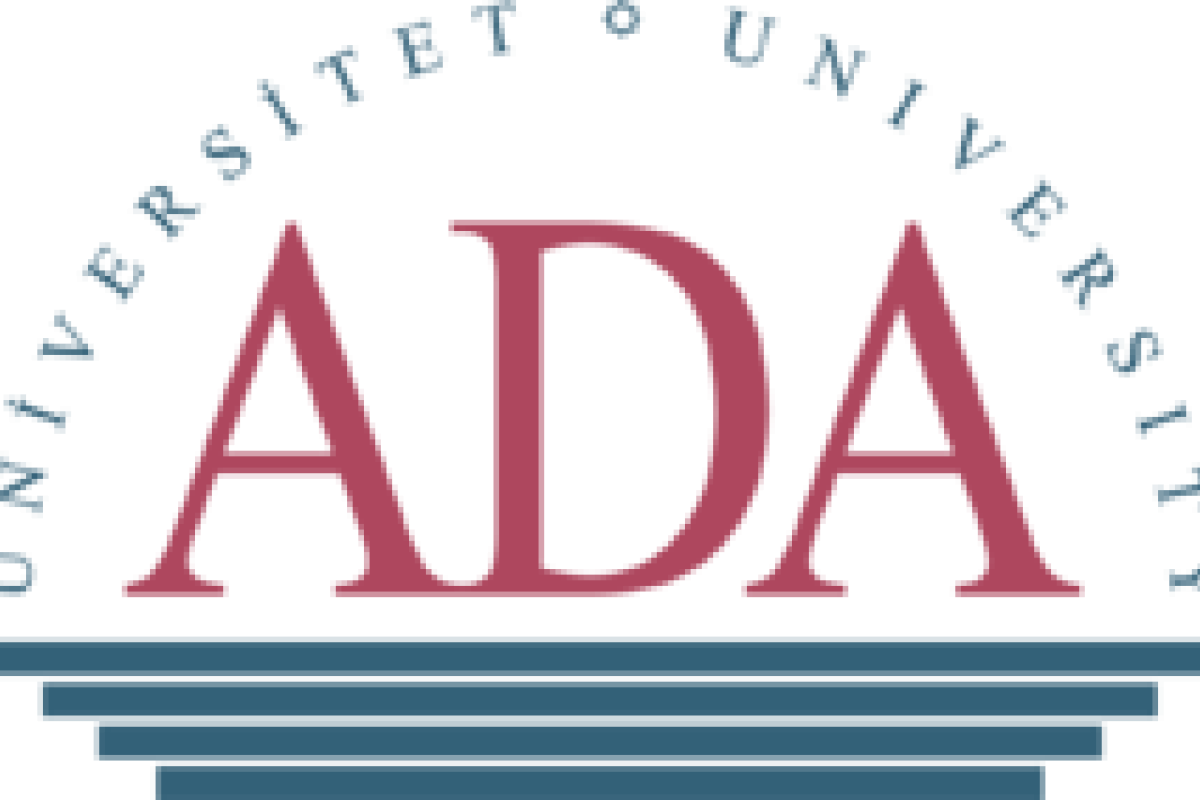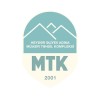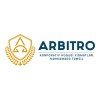ADA University

Şirkət haqqında:
ADA University was established under the decree dated January 13th, 2014, by the President of the Republic of Azerbaijan. The University is a state higher education institution engaged in the delivery of undergraduate and graduate degree programs in addition to the advancement of research.
The University is the legal heir of the Azerbaijan Diplomatic Academy (ADA) and Information Technologies University. They were merged in January 2014 to establish ADA University.
Founded on March 6, 2006, the Azerbaijan Diplomatic Academy began offering an Advanced Foreign Service Program to diplomats of the Ministry of Foreign Affairs and civil servants in the government, as of January 2007. The Academy launched its first master degree in September 2009, followed by bachelor degrees in September 2011.
Əlaqə vasitələri:
Assistant / Associate Professor in Environmental tools and methods
Department: School of Design & Architecture
Brief information about the School of Design & Architecture at ADA University
The School of Design and Architecture (SDA) is outlined in collaboration with the Politecnico di Milano in the framework of the Italy-Azerbaijan University initiative. It will offer bachelor's, master's and non-degree certificate programs in Design, Architecture and Urban Planning. ADA University is intertwined with the country’s plans, where economic and cultural growth lead the way. The urban areas are growing, and the country landscape and profile are evolving.
The School of Design and Architecture will share the polytechnic approach to Design, Architecture, and Urban Planning. Graduates will gain foundational disciplinary knowledge and practical experience, thanks to fundamental courses and the learning-by-doing educational approach that pursues up-to-date development lines in project-based design studios. The School of Design and Architecture offers an international level of study suitable for entering the job market as a junior architect or designer.
More information about SDA can be found at www.ada.edu.az/en/schools/sda
Why apply for this position
The School of Design and Architecture is the place for constant education and innovation, where students will develop the knowledge and skills to contribute to the country’s goal. Indeed, the School of Design and Architecture will raise a new generation of Designers, Architects, and Urban Planners who will participate in the country’s progress, sharing and making the vision for it.
For this purpose, the School of Design and Architecture will collaborate with public institutions to promote coordinated efforts toward progress, indicating priorities, developing projects, and anticipating future scenarios. Furthermore, the School of Design and Architecture will collaborate with local communities to promote the country’s development beyond Baku and with global partners to reach a multicultural environment and international status.
Due to this ambitious program, joining SDA will be an opportunity for academic growth and engagement within a new international community of designers and architects.
Brief description of responsibilities:
Principal responsibilities include teaching undergraduate courses in Architecture. Candidates must have a potential or demonstrated commitment to teaching excellence, scholarly research and publication in peer-reviewed journals, and academic engagement.
Qualifications:
- Candidates for Assistant Professor must have a Ph.D. in Design or Architecture from an accredited institution or anticipate completion by August 1, 2026, or sooner.
- Candidates for Associate Professor must have a Ph.D. and evidence of quality scholarship.
How to apply:
Please, send to the e-mail address in the Apply for job button the following documents in the PDF format by August 1, 2025, 10 PM Baku time (GMT+4).
- Cover letter (max 1 page)
- Curriculum vitae
- Portfolio of selected students’ works (if available)
- Summary of teaching evaluations (if available)
- A list of publications and a PDF of a maximum of three of them
Women and members of minority groups are strongly urged to apply.
Teaching Position Details in Environmental tools and methods
Programme: Bachelor of Urban Planning
Year: 1st
Courses: Introduction to Urban Sustainability
Description of the Disciplinary Area:
The disciplinary area ‘Environmental Tools and Methods’ enables the student to acquire basic knowledge of ecology and geology in direct relation to the specific project of the Educational Programme. Such basic knowledge is verified in the different evaluation moments provided within the thematic theoretical courses on this subject area, and the specific Environment and Landscape Planning Studio, that is planned in the fourth semester for a further and more advanced application of such content. However, such basic ecology and geology knowledge finds application and verification also in the ability to use it in the analytical and design activities within all the semestral Studios characterizing the Educational Programme, combining with the main student's training pathway in urban and regional planning and design issues. Accordingly, the skills of this subject area are provided during the entire three-years course, both in order to strengthen and characterize the interpretative and cognitive analyses of cities and regions with an environmental sensitivity, and to foster the application of such skills to urban and regional planning and design. In particular, the courses and the Studio of this subject area refer to two specific targets. On the one hand, they aim to raise the awareness of the students about the unsustainability of current spatial development models and the effects of climate change. On the other, they aim to introduce them to planning strategies, actions, rules, and evaluation processes which incorporate the goals (i) of reducing the impacts of the built environment, (ii) of considering the risk factors in their planning and design, and (iii) of developing green infrastructures and nature-based solutions to contribute to the ecological transition of contemporary cities and regions.
Description of the course
- Introduction to Urban Sustainability
Semester: First and Second
Start dates: February 2026 (teaching starts September 2026) /
October 2026 (teaching starts January 2027)
The course aims to introduce students to the principles of the 17 Sustainable Development Goals (SFGs) promoted by the United Nations, and to their application to theories and practices of urban and regional planning and design. With this specific lens, a selection of advanced concepts, strategies, tools, mechanisms, and projects are analyzed to provide students with basic but critical knowledge and understanding of multiple definitions, demands and implications of sustainability in relation to spatial patterns: from mobility and open spaces to land use and urban morphology, up to building materials and typologies, in the prospect of broader reorganization of urban-rural relationships. Accordingly, the course aims to frame the evolution of the international agreements, and to position the challenges for the Azerbaijan context (also with a specific comparison with the European Union legislation). In particular, the course focuses on a selection of specific issues that the sustainable transition of cities, regions, and their communities must consider: from ecological issues (i.e., the environment and landscape quality, the ecosystem biodiversity protection, the carbon neutral transition, the climate change adaptation and mitigation) to social issues (i.e., the social inclusion and the gender equity) and spatial issues (i.e., the territorial cohesion and the urban metabolism). In this prospect, the course also aims to provide students with some first knowledge and understanding of the differences between the Keynesian approach and the neoliberal approach to spatial planning and design. Articulating into theoretical lectures and readings, operative tools and international case studies, seminars and discussions, the course and its exercises aims to develop basic but critical knowledge and awareness around the ongoing changes and challenges for the urban and regional planning and design in relation to the implementation of the Sustainable Development Goals (SDGs). With its focus on sustainability, the course and its exercises aim to outline a variety of contemporary issues, concepts, devices and actions for spatial planning and design, which will be explored in detail and applied within the courses and studios of the following semesters.
Basic knowledge required to teach the course:
- Strong understanding of foundations, theoretical principles, technical lexicon, and methodologies concerning urban and regional planning and design, and of their relationships with the 17 Sustainable Development Goals (SFGs) promoted by the United Nations.
- Familiarity with the European Union legislation on the green transition.
- Expertise in teaching the ecological and social implications and demands for spatial planning and design, as well as the opportunities and techniques for the transferability of the principles of environmental and social sustainability to strategies and actions of urban and regional plans and projects.
- Expertise in guiding students through readings, exercises on operative tools and international case studies, seminars and discussion in understanding the connections between global challenges for environment and society, and local strategies and actions of spatial planning and design.































 Mobil:
Mobil:  Web:
Web:  Əlaqələri yadda saxla
Əlaqələri yadda saxla
 ADA University
ADA University